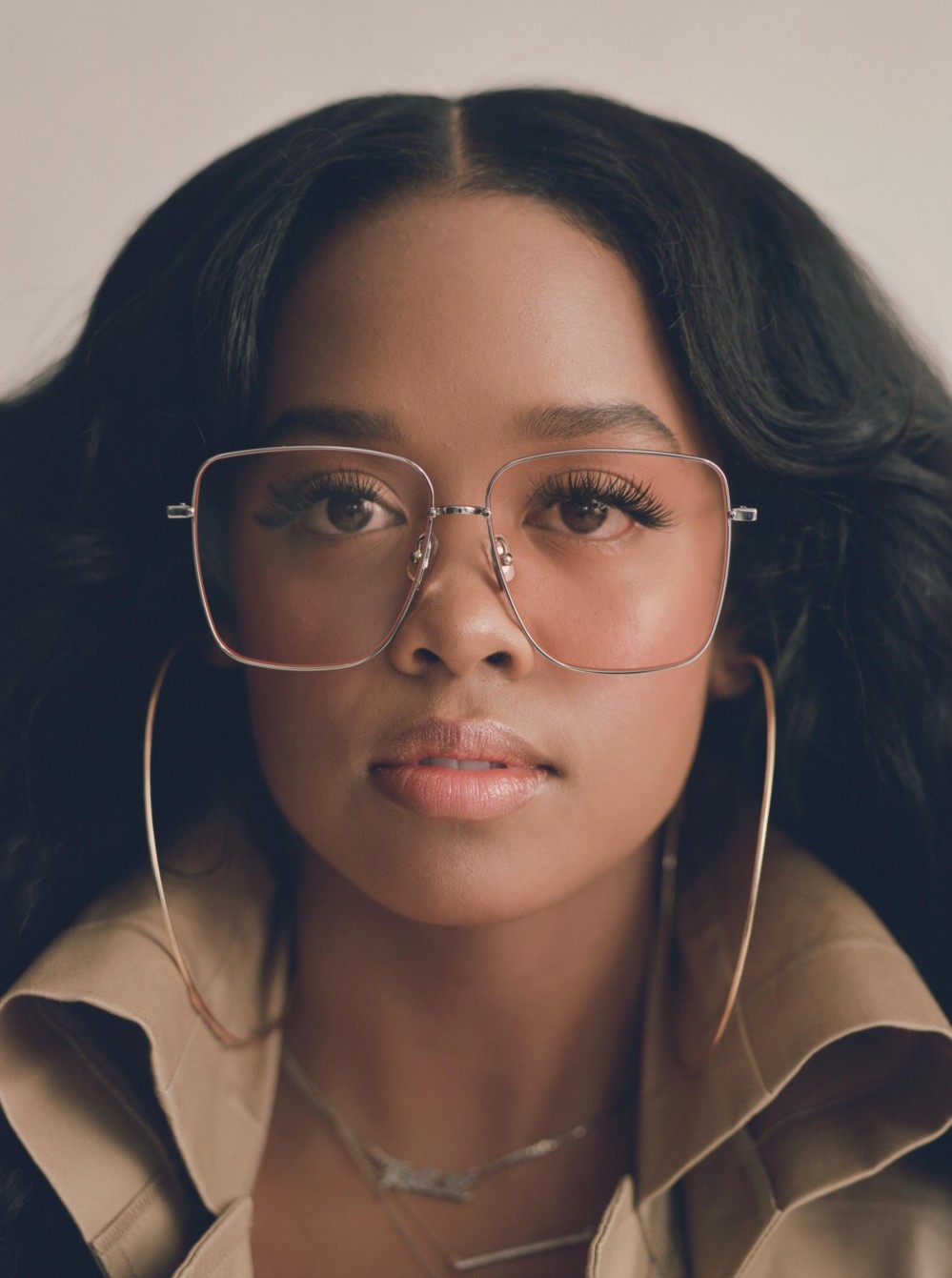H.E.R.’s cathartic brand of hazy R&B has established her as a voice of a generation. Now, she’s primed for the next phase. This is a story about the long game; one we could all learn from.
– – –
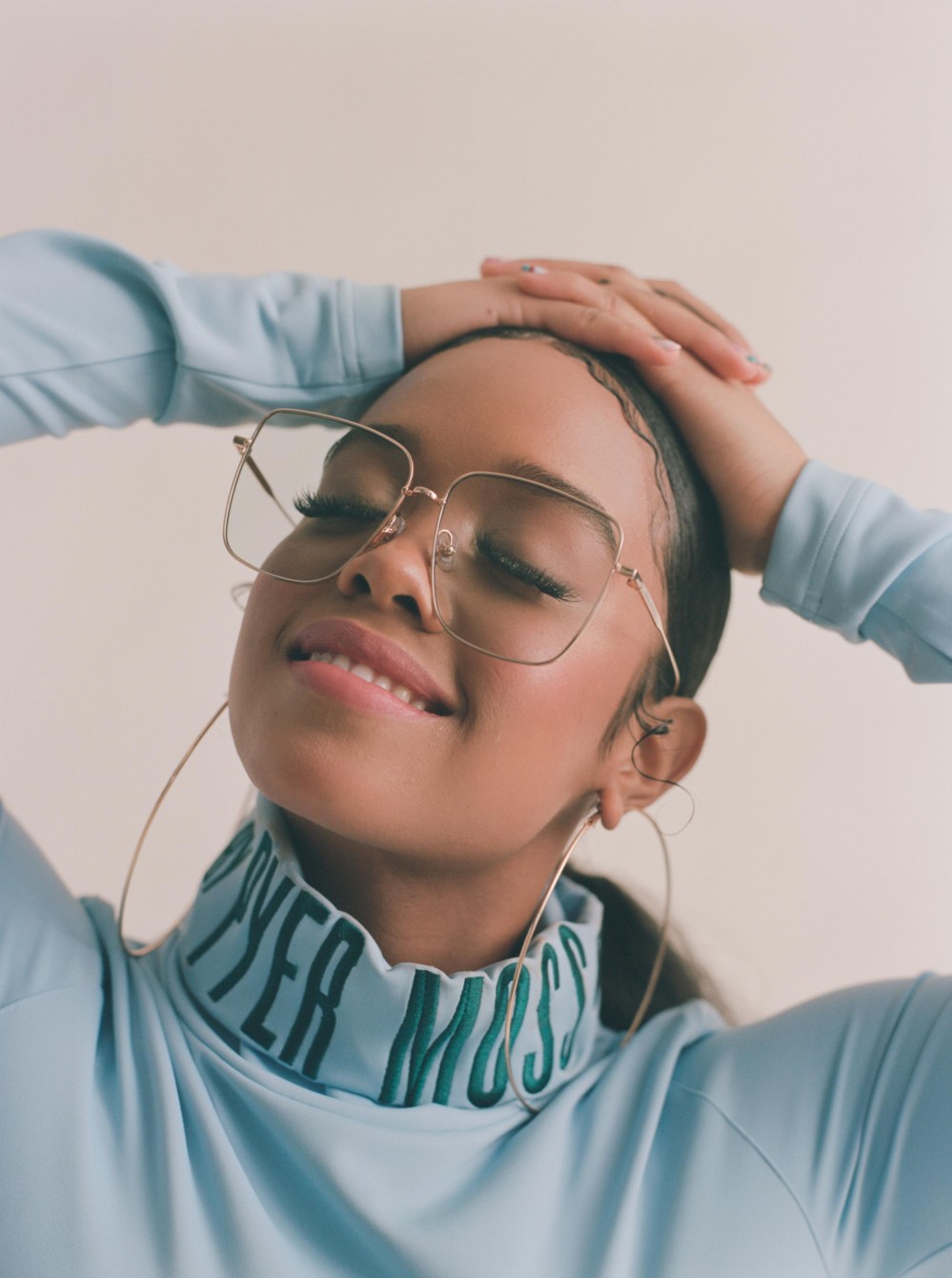
– – –
Dumbo House. A utilitarian haven, overlooking the Brooklyn waterfront, famed for attracting creative over-achievers in one impermeable bubble. It’s dark outside for 2pm: the Manhattan metropolis and East River blanketed in a dusky haze. We’re sat in a corner made vacant for H.E.R., real name, Gabriella Wilson. Adorned in plush grey sweats, a Gucci scarf, and a big oversized raincoat, Clash joins the indomitable auteur on a “quieter” day in a week that’s packed-to-the-brim.
H.E.R. has the air of a luminary. Her tinted shades, a permanent emblem of the mystique she’s commodified to preserve parts of herself. Having Everything Revealed, the meaning behind the self-styled acronym, is apposite, given our personal boundaries blurring to the point of obfuscation. It’s somewhat surprising then, that H.E.R. is generous in conversation, roused by her history and dreams for the future.
By shunning radio payola and monopoly over press, her ethos now, remains consistent with when she started out; to foreground artistry over the profligacy that comes with celebrity. It’s probably why she hasn’t been burdened by the type of multivalent fame that mars her contemporaries.
“Sometimes I still struggle with how much of myself I reveal because I reveal a lot in my lyrics, but I don’t think out of fear anymore,” she declares. “To whom much is given, much is required. I could only be in the shadow for so long.”
– – –
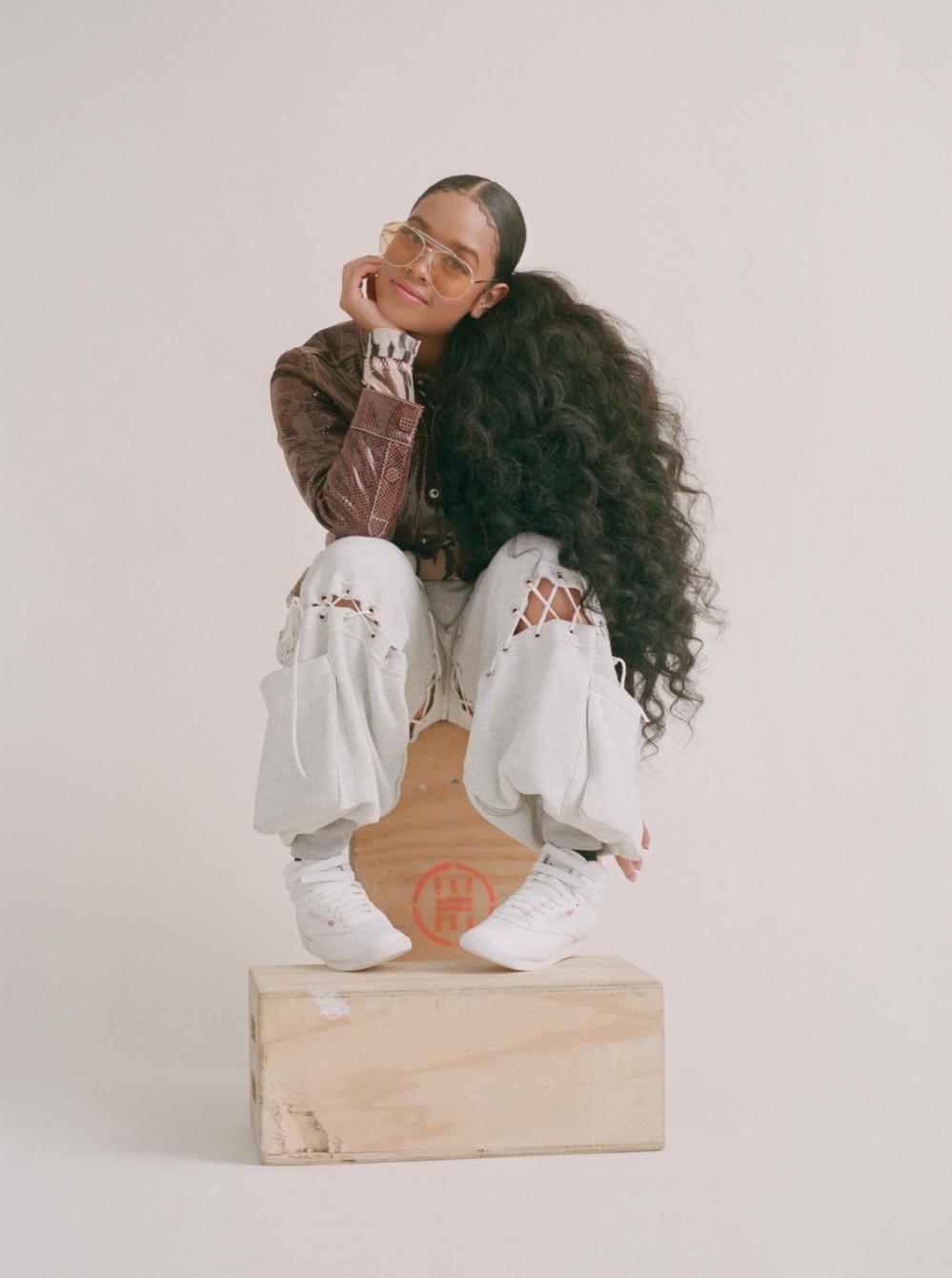
– – –
When the California native released ‘H.E.R. Volume 1’ her socials were clogged by a bellicose fandom imploring her for an identity reveal. “People were like: who is this? What does she look like? I didn’t even think about the shades then, I was just curious to see how people would react to the music,” she reflects. “Everybody cares about the extraneous, I don’t care about those things. I care about my music and I want everybody to care about my music.”
H.E.R. has a knack for tracing moments in music history, citing not just women who blazed the trail for her but producers like Darkchild, No I.D. and Kanye who helped mould her dexterity with soundscapes. “Rodney (Darkchild) told me a story about Brandy’s ‘Full Moon’ and how they mixed it. He ventured all the way in his car during the engineering phase and completely re-worked it because he wasn’t satisfied,” H.E.R. explains.
She shifts in her seat. “We’re missing that eagerness to create something that oozes quality. It’s not just about taking a snare from that song and putting it in your song. Kanye took the time to say: this makes me feel something. How did you feel when you heard ‘Gold Digger’? Those drums, the quality of sound is just… different.”
– – –
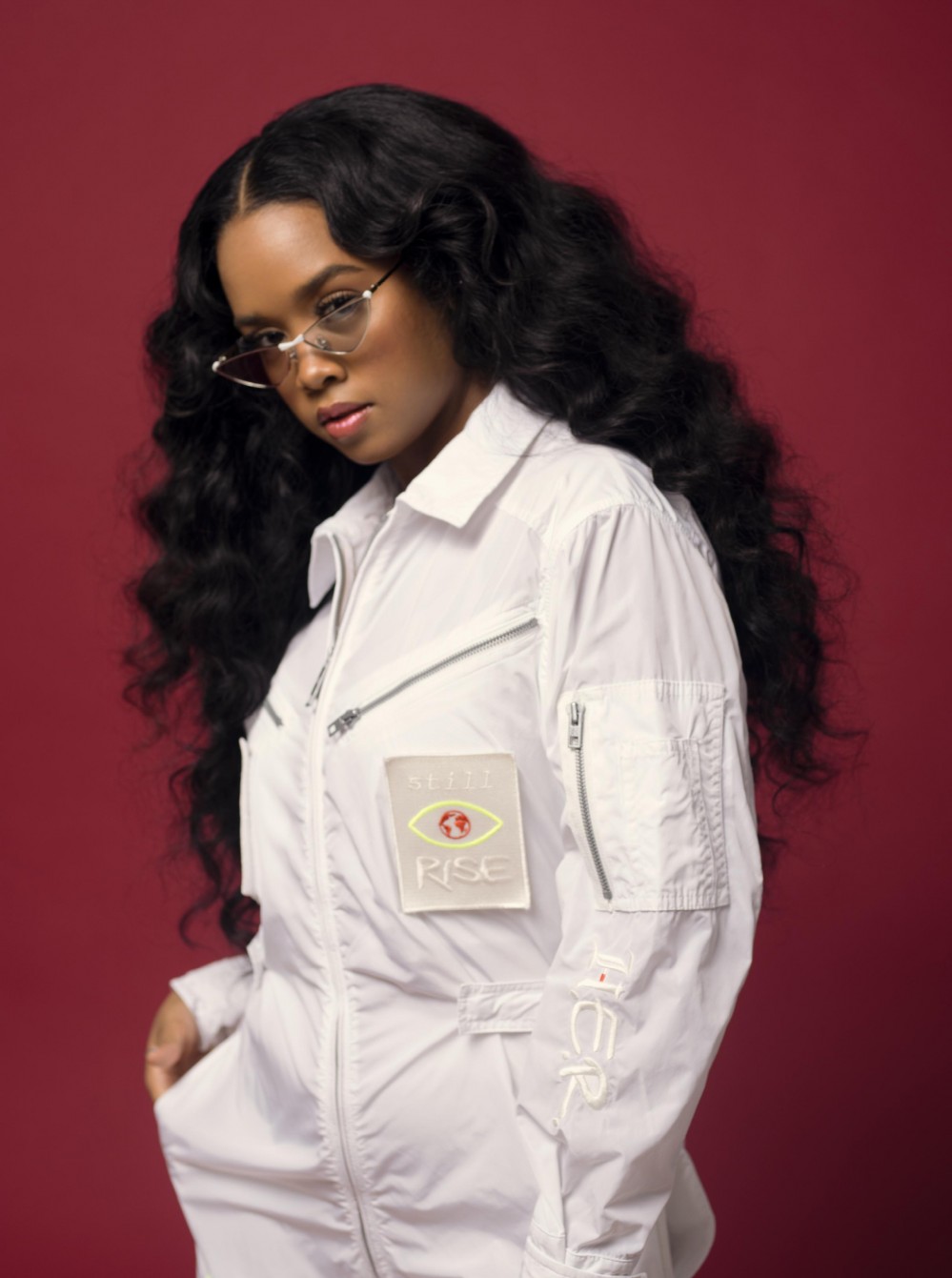
– – –
Thus far, H.E.R. has accrued both critical and commercial success, and she’s not even at her zenith. In 2019, H.E.R. became a Grammy-winning phenomenon, nabbing Best R&B album, a mammoth achievement for music derived from mere EPs. At this year’s ceremony, she secured nominations for Album, Song and Record of the Year. In a move that surprised no one, however, the songstress walked away empty-handed, illustrating again, the Recording Academy’s refusal to affirm black excellence in the top three categories of the night.
“Billie was deserving, absolutely. I do think true representation and recognition is missing with those top awards, there’s a lot of politics involved.” Does she live for awards glory? “No. You can’t live your life for the acknowledgment of other people and count on them to appreciate your work. To me, winning a Grammy was important for validation, but as a musician it shouldn’t drive you. Also, Prince only won 7 Grammys!” an incredulous H.E.R. says.
– – –
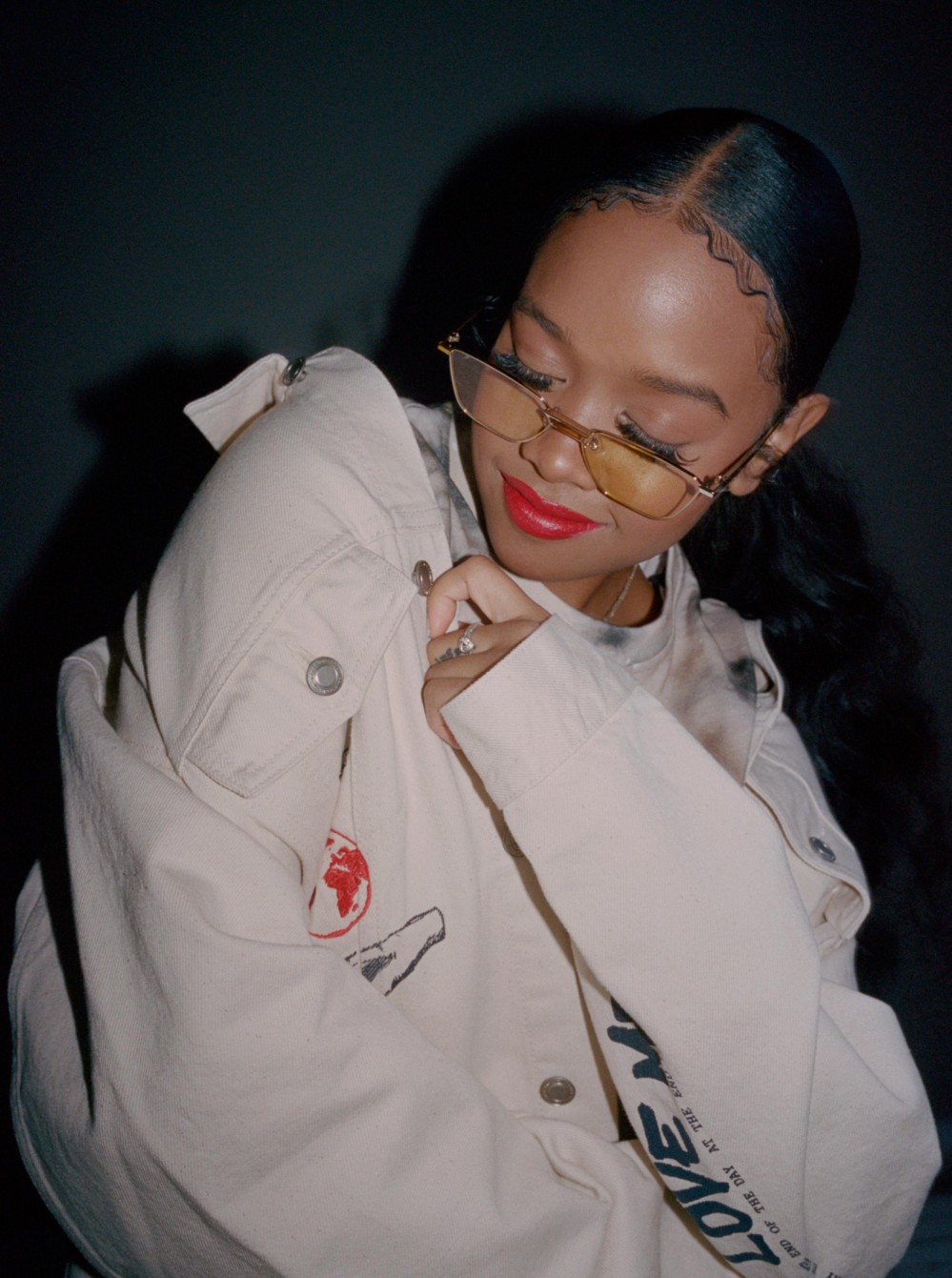
– – –
Catching H.E.R. live is to witness her legerdemain as a live performer. Flitting between electric and acoustic guitars, and of course Fender Rhodes, she’s often augmented by backing singers collectively playing out a harmonic reverie. It’s a proverbial middle finger up to cynics who questioned the “R&B siren” for wielding a guitar. To them black musicians – especially women – do not possess the range to be virtuosos in their own right, instead they exist as marionettes at the mercy of a male producer. “There was a lot of background noise at the beginning of my career,” H.E.R. recounts.
“I got told I’d be shelved. I’m a young black woman who plays an electric guitar, and that’s not something that happens. That’s risky. I had to get people to listen. I had to get them to believe in me. I’ve performed with Aerosmith; I’ve been on stage with Sting. That was always the point. That was the bigger picture. Oftentimes, musicians who feel undermined, need to hone in on that bigger picture,” she says with vim.
H.E.R. understands the capricious nature of music, where attention spans wane and new artists struggle for consistency in an over-saturated market. She counters transience, by creating timeless songs which shirk money-grabbing trends. R&B and soul may form the nucleus of H.E.R.’s sound but it’s something she avows, does not place a frontier on her ability to reach different audiences.
“When we think about classic 90s R&B, what it became as a culture, it’s about raw emotion, passion…It’s something you turn on for your date, something to get you in the mood, something to get you over heartbreak,” H.E.R. explains. “You can’t put a label on something that touches everybody. You can’t box things that are universally felt.”
– – –
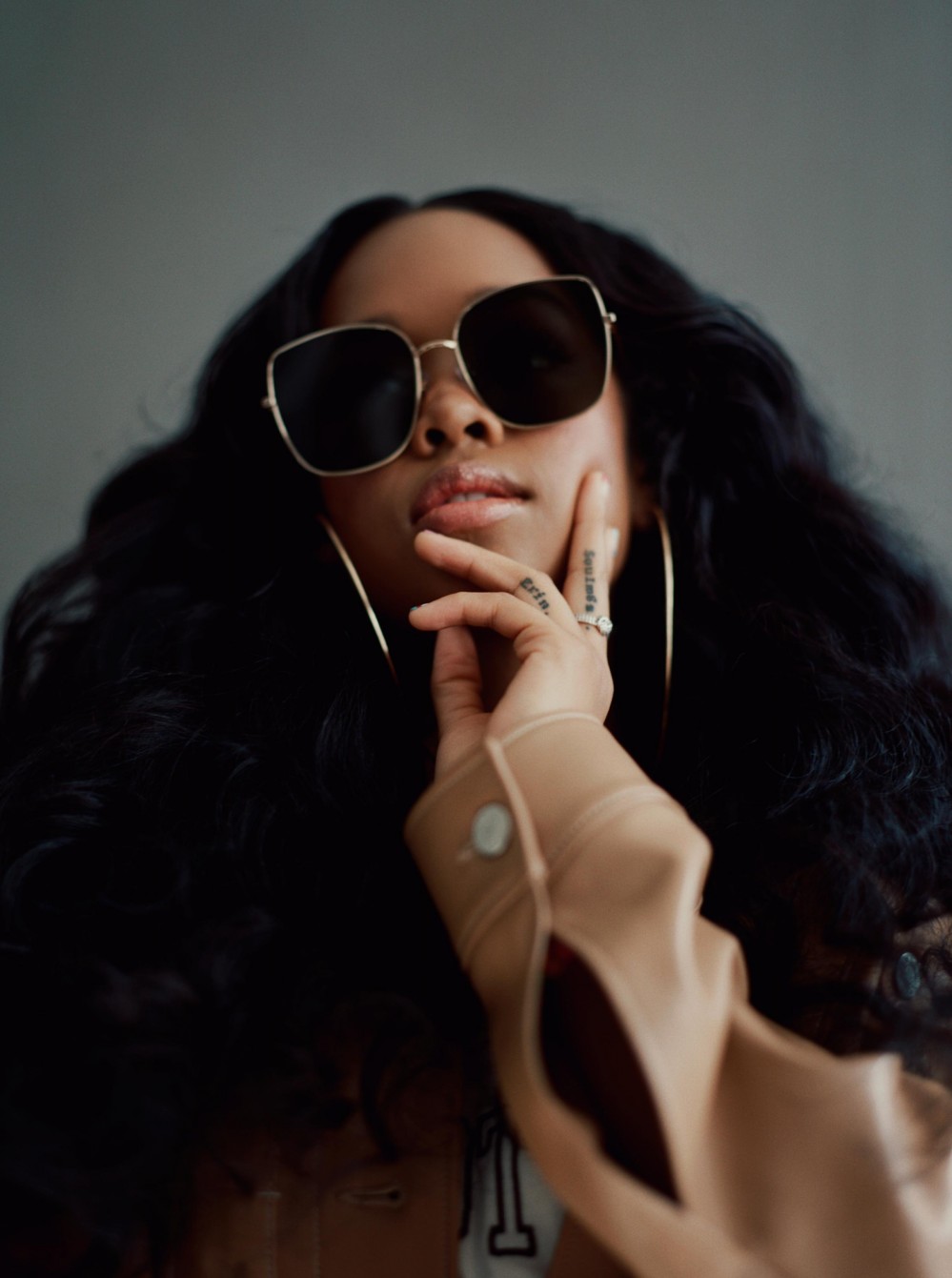
– – –
Part of a new era of womanist R&B less reliant on sweet nothings, H.E.R. favours something more radically honest. Excavating something sensory from the natural ebbs and flow of modern love, H.E.R.’s 2019 compilation album ‘I Used To Know Her’, delved into “the vulnerable journey through womanhood and relationships.” From the vacillation anthem ‘Feel A Way’, to the ‘Velvet Rope’-era salvific sensuality of ‘Take You There’, to the folksy ‘Hard Place’ – a crossover number, weaving a narrative of lovers out-of-sync – H.E.R. completed the transition to adult contemporary.
“Hard Place’ was a song that wasn’t boxed as anything. It was the live performances, and the way it was connecting with the audience, that made me think this song was more transcendent,” H.E.R muses. “I think it speaks to that body of work as a whole. This emphasis on being soul-baring, and that’s heightened through live instruments.”
H.E.R.’s entering the realm of “the multi-disciplinarian”; believing now is the time to reconnoitre other opportunities in tandem with her musical ambitions. Just recently, she cashed in on the clandestine “H.E.R. effect” by launching an eyewear range, as both an armour and accessory. Moreover, H.E.R.’s atypical appeal led to her first foray into fashion, a guest collaboration with Tommy Hilfiger and Lewis Hamilton. “The main thing for me, in everything I do with brands is I don’t just want to be the face of something. With Tommy, they wanted to hear my ideas from the off. I asked: Can we make a jumpsuit? They were like: sure!” she beams.
The unisex range, launched in February, continues Hilfiger’s commitment to sustainability and inclusivity, which H.E.R. professes, sealed the deal. “Tommy is such a quintessential, iconic American brand…I think about Aaliyah, I think about my Mum in the 90s wearing Tommy jeans, jackets and the windbreakers – so it felt sentimental for me.”
Describing the pieces as “chic but comfortable”, the capsule circumvents the fallibility of “body image”. By flexing autonomy over a capsule that intentionally un-centres the female form as the selling point, H.E.R. wants to telegraph something more wholesome to impressionable buyers. “I go against a lot of the fashion conventions,” she says. “And the industry has come a long way. It’s more inclusive now and streetwear’s huge amongst women. I’m so happy Tommy continues to champion the alternative.”
– – –
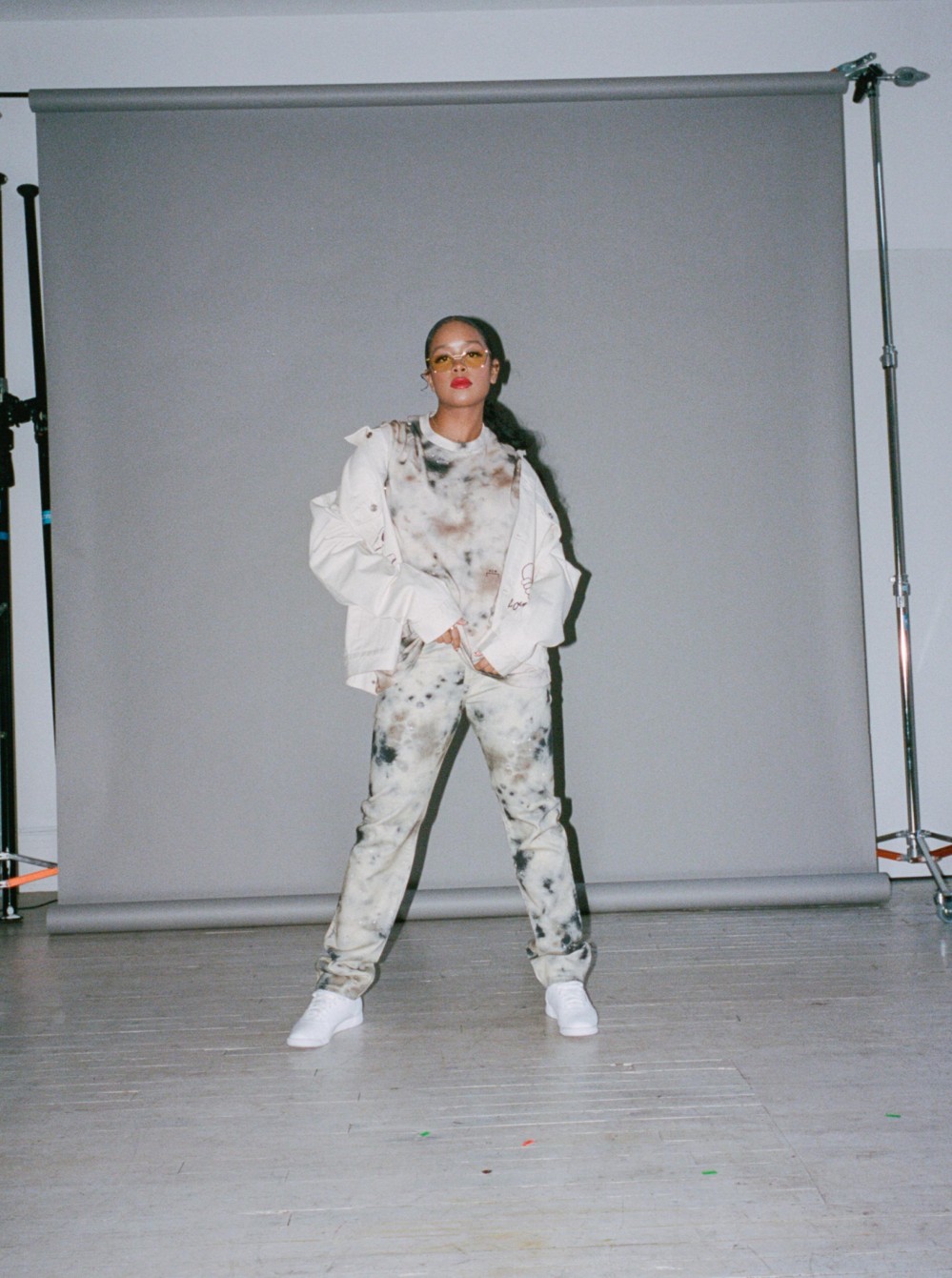
– – –
On the cusp of 23, H.E.R.’s ready to further unfurl the intricacies of adulthood on her much-anticipated debut LP, expected later this year. The pared-down sounds of ‘Sometimes’ and ‘Comfortable’ are mere indicators of what she describes as her most diverse set to date: marrying the lucidity of ‘H.E.R.’ with the more pronounced storytelling of ‘I Used To Know Her’.
“I began working on this record before ‘I Used To Know Her’,” she confesses. “I’m very anal about the sounds and mixes. I really care about the finished product.” When pushed for details about the project, H.E.R. grins, teasing just enough to sate. “The songs are much more musical, more organic, a little bit rawer. You’re going to hear a multi-genre record. In a way it’s reminiscent of my first project.”
On her full-length, she’s basking in a more stable chapter of her life, reckoning less with the impulses of her teenage self. Expect a fearless H.E.R.: undaunted by the revelatory, happy to luxuriate in the unanswerable. “Listening back to my earlier material, there was a lot of indecision and angst. That’s what being a teenager is about, and I was young when I created those projects,” she reflects.
“Now, I’m surer of myself. There’s this song called ‘Anti’ on my record, that I performed at the VMAs. It’s me saying: I know who I am, I know what I represent, so take me as I am. And then there are songs like ‘Sometimes’, where things just don’t go your way. There’s no need to question it. You learn from it, and move on.”
H.E.R. looks out into the expanse of Dumbo House, the noise levels intensifying. “I mean no disrespect to artists creating in their bedrooms and the wave of creators coming through that way because DIY is so powerful. But I feel like we need to take the time to put out quality. With Quincy and Michael, when they made their records, they took their time with each and every sound. We’re afraid of making mistakes, so we follow a blueprint.”
“Passion over perfection, that’s what I live by now. I’ve always been sure of myself, and I got praised for it. The reality is, I get it wrong sometimes, and that’s okay. Trust the process, trust yourself and take your time.”
Words to live by.
– – –
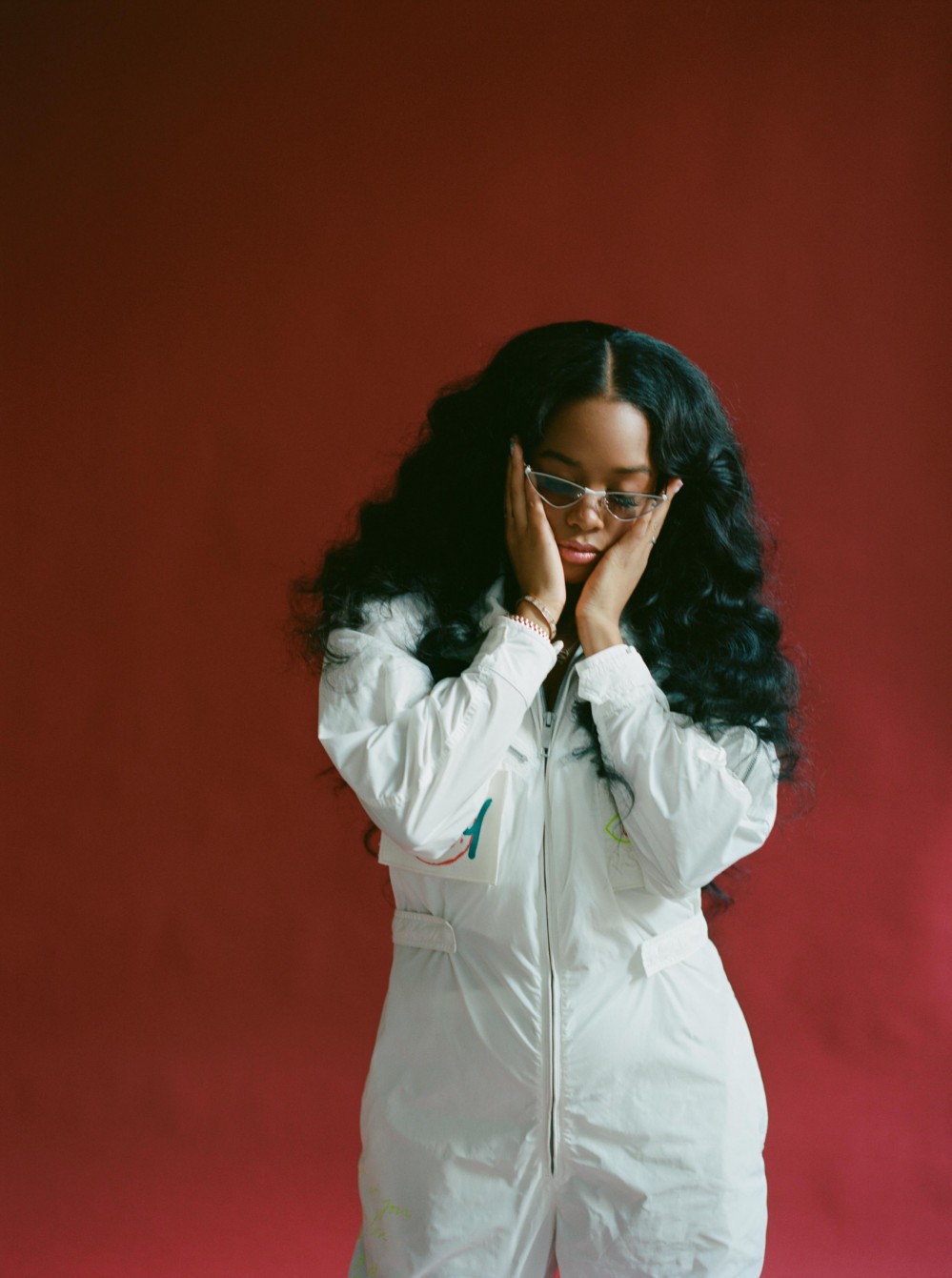
– – –
Words: Shahzaib Hussain
Photography: Teddy Fitzhugh
Fashion: Sebastian Jean
Join us on the ad-free creative social network Vero, as we get under the skin of global cultural happenings. Follow Clash Magazine as we skip merrily between clubs, concerts, interviews and photo shoots. Get backstage sneak peeks, exclusive content and access to Clash Live events and a true view into our world as the fun and games unfold.

